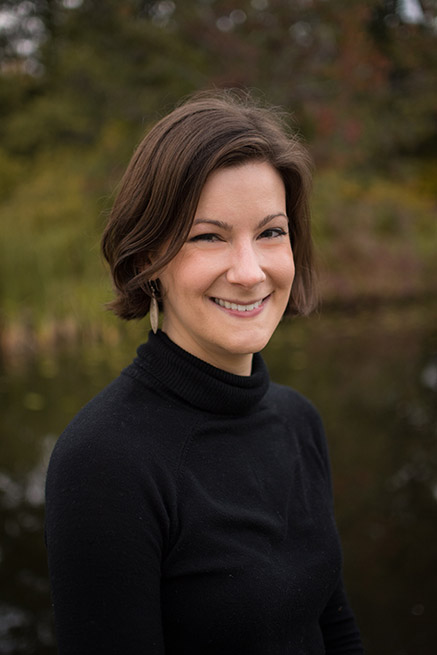
Fellows come from all over the university, bringing their particular passions and living out the public purpose of their discipline through teaching and researching in, with and for community.
See Details
Engaged Public Health Communication Course
Public health efforts are often dependent upon people changing their behavior, attitudes or perceptions. Communication is a key component of facilitating that change.
In her Public Health Communication course, Amelia Greiner Safi teaches students how to use behavioral and communication theory to identify barriers to the desired behavior for a particular audience. Students have the option of working with a community partner for their course projects and participate in a series of workshops and labs to refine their work. The goal of the assignment is to plan, create and evaluate a public health communication product that contains theory-informed, audience-appropriate content, including cultural and literacy considerations.
As a Faculty Fellow in Engaged Learning, Greiner Safi is also working on a research project about Black experiences of gynecologic cancers, with the aim of addressing the growing racial disparities in survival. The large team of academics, oncologists and community partners is collaborating on an study design, data collection, data analysis and sharing of findings. The team aims to pursue this work in a way that prioritizes participants’ lived experience and engages participants in the analysis.
“Many public health entities are underfunded or otherwise struggle to prioritize their communication efforts. Sometimes existing communication efforts are not particularly strategic and rely on content and approaches that are unlikely to lead to change. Through this course, partners have the support of a public health student for ~3 months to help them problem solve, come up with a strategy and design something that goes through multiple rounds of peer and faculty feedback. And students benefit by applying course material to a real-world public health problem.” —Amelia Greiner Safi


